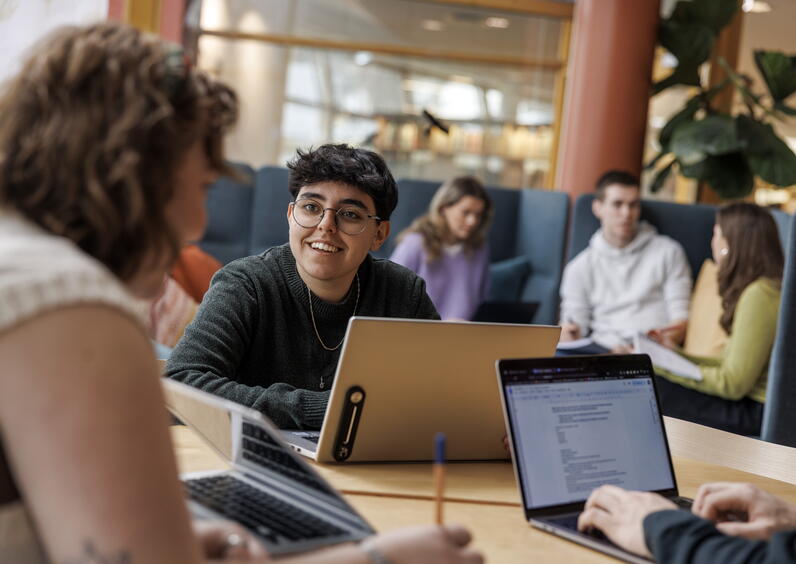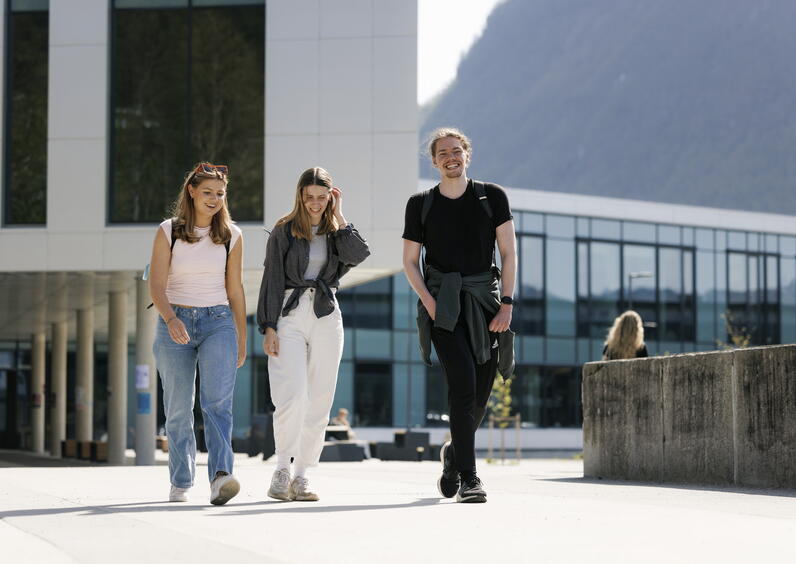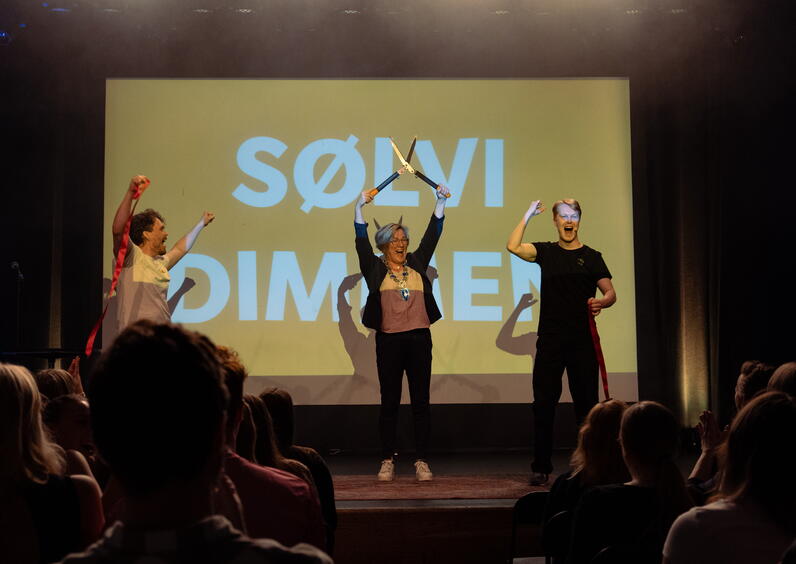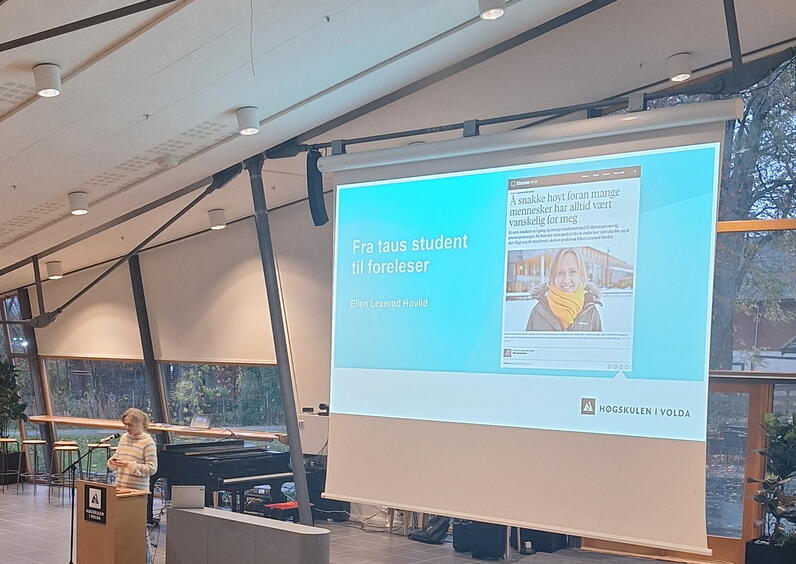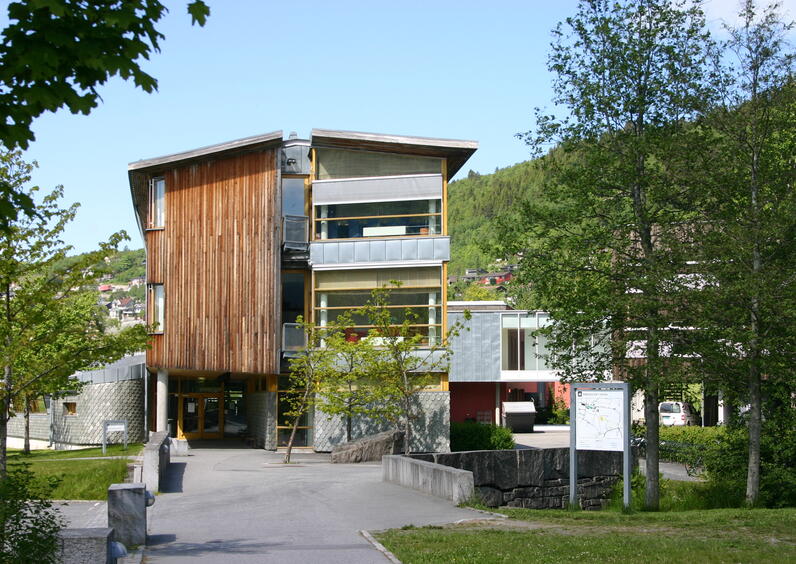Study tour to Austria - facts and fun
- To get a full understanding of how EU regional development, agricultural and environmental policies work in practice and what they mean for a member country, students from the "The European Union and Regional Development" went on a field excursion to Vienna with associate professor Nathalie Homlong from Volda Uni College.
”How does the European Union work? What effects do EU policies have on the member countries? And what effects do they have on Norway?”
These are some of the key issues that students of the class “The European Union and Regional Development” learn about.
The course is held by Dr. Nathalie Homlong, who has a doctorate degree in economic sciences from the Vienna University of Economics and Business Administration. In her work as associate professor both at Volda Univewrsity College and previously at the University of Applied Sciences BFI Vienna, Nathalie specializes in European Union regional development issues.
Experiences from last excursion
To get a full understanding of how EU regional development, agricultural and environmental policies work in practice and what they mean for a member country, Nathalie and the student group of last spring’s course traveled to Austria. 
The class on a presentation at the Chamber of Labor in Vienna.
Starting from Vienna, where they visited the Federal Chamber of Labor to get an assessment of the positive and negative sides of EU membership for Austria, the group traveled south to Styria. They visited the province’s capital Graz, where they learned about EU city development projects and Graz’s experiences as Europe’s cultural capital in 2003, which helped turn the baroque city into a regional center of contemporary architecture and art. The group visited several regional management centers across Styria to learn about projects on rural development. Whether Styria and its neighboring region in North Slovenia manage to cooperate was the topic of a presentation held in Maribor / Slovenia.
The final part of the trip was a visit of Gesäuse national park, which is partner of the EU financed LIFE project. Besides giving many useful insights into EU issues, the excursion also offered a “social program” that included sightseeing in Vienna, nightlife in Graz and wine tasting on a Styrian wine farm. 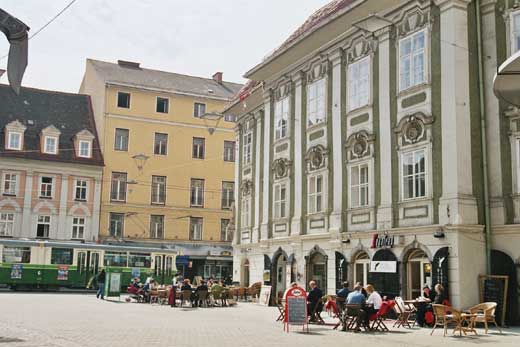
Traditional and modern sides of Graz.
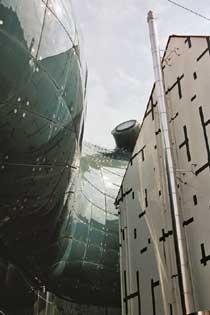
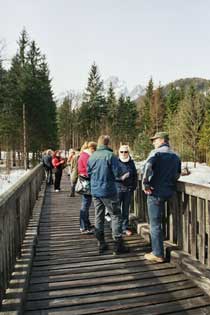 Last picture: Guided hike in Gesäuse national park.
Last picture: Guided hike in Gesäuse national park.Information EU course 2007
The EU course in spring 2007 will offer a similar excursion to Vienna and Styria. There are two options for taking this course: you can go for 10 study points (IPA113) or 15 study points (IPA213).
Are you interested in participating in the next EU course in spring 2007? Find out more about IPA113 and IPA213 in the study handbook on the HVO-website or contact Nathalie Homlong at nh@hivolda.no!

